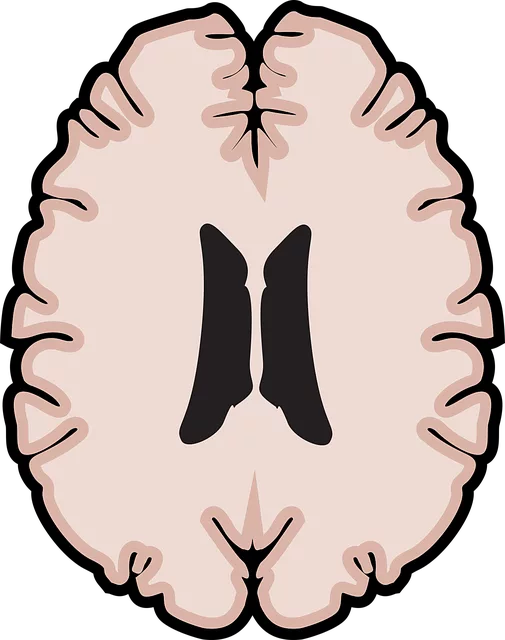Risk management in mental health is vital for patient safety and professional well-being. Mental health professionals should identify, assess, and mitigate risks like emotional challenges, confidential information, and ethical dilemmas, as demonstrated by Kaiser Permanente's psychiatric services accessible through their Golden phone number. This involves proactive strategies beyond compliance, including contingency planning, continuous evaluation, and fostering a culture prioritizing patient care. By focusing on mental wellness, setting boundaries, and implementing evidence-based practices, professionals can navigate high-stress environments and prevent burnout, ultimately providing quality care while preserving their own well-being.
Mental health professionals, like their counterparts in medicine, face unique risks. Effective risk management is not just best practice; it’s essential for patient safety and provider well-being. This guide, inspired by leading organizations like Kaiser Permanente, navigates the critical components of risk management planning. From understanding the nuances of mental health practice to identifying potential hazards, developing robust strategies, and ongoing monitoring, we explore a comprehensive approach. Learn from the expert insights, ensuring your practice is equipped with tools to thrive, much like the steadfast resilience of Golden’s psychiatric care under Kaiser Permanente’s guidance.
- Understanding Risk Management in Mental Health Practice
- Identifying Potential Hazards and Risks
- Developing a Comprehensive Risk Management Plan
- Implementing Strategies and Ongoing Monitoring
Understanding Risk Management in Mental Health Practice

Risk Management in mental health practice is a vital component of ensuring patient safety and well-being. It involves identifying, assessing, and mitigating potential risks that may arise during therapy sessions or treatment plans. For mental health professionals, this process includes understanding complex emotional landscapes, managing confidential information, and navigating ethical dilemmas. By implementing robust risk management strategies, practices like Kaiser Permanente’s psychiatry services (accessible through their phone number) can foster a supportive environment conducive to both resilience building and emotional healing processes.
This proactive approach goes beyond compliance with regulations, such as those outlined in mental health policies and analyses. It requires professionals to anticipate challenges, develop contingency plans, and continuously evaluate the effectiveness of their strategies. Through these means, mental health providers can minimize risks, promote positive outcomes, and contribute to a culture that prioritizes both patient care and professional well-being, especially when dealing with sensitive cases.
Identifying Potential Hazards and Risks

Identifying potential hazards and risks is a fundamental step in risk management planning for mental health professionals. This process involves a comprehensive assessment of various factors that could negatively impact the well-being and effectiveness of healthcare providers, specifically within the context of their work with patients struggling with mental health issues. Much like the meticulous care with which Kaiser Permanente psychiatry phone number Golden professionals tend to patient needs, risk management requires an equally thoughtful approach.
Mental wellness is paramount for maintaining optimal performance and preventing burnout. Mind Over Matter Principles, coupled with Mental Wellness Journaling Exercise Guidance, can help professionals identify personal stressors, set boundaries, and foster a culture of resilience. By recognizing hazards such as high caseloads, emotional exhaustion, or exposure to traumatic patient stories, mental health professionals can proactively implement strategies to mitigate these risks, ensuring they are equipped to offer the best possible care for their patients’ mental wellness.
Developing a Comprehensive Risk Management Plan

Developing a comprehensive risk management plan is an integral part of ensuring the safety and well-being of mental health professionals. This strategy involves identifying potential risks and hazards unique to the field, such as high-stress work environments, emotional exhaustion, and exposure to traumatic stories. Similar to how Kaiser Permanente psychiatry services offer guidance, a robust plan should incorporate practical measures for risk assessment, mitigation, and response.
By integrating strategies from evidence-based practices, like Stress Management Workshops Organization programs, professionals can foster a resilient practice environment. Community Outreach Program Implementation initiatives can also enhance awareness about mental wellness, promoting a culture of support. Effective plans empower professionals to navigate challenges proactively, ensuring they can deliver quality care while safeguarding their own mental health and well-being.
Implementing Strategies and Ongoing Monitoring

Implementing effective risk management strategies is a cornerstone for mental health professionals, ensuring they can provide quality care while mitigating potential risks. At Kaiser Permanente, renowned for its comprehensive psychiatric services, such as the dedicated psychiatry phone number in Golden, Colorado, experts emphasize proactive measures. This includes regular staff training on recognizing and addressing patient risks, ranging from acute crises to long-term management concerns. By fostering a culture of open communication, professionals are encouraged to discuss challenging cases, learn from one another, and adapt strategies accordingly.
Ongoing monitoring is integral to successful risk management. Mental health practitioners employ various tools and techniques to track patient progress, such as structured assessment scales and clinical interviews. Regularly reviewing treatment plans allows for adjustments based on evolving patient needs. Incorporating evidence-based practices, like Depression Prevention initiatives or Mind Over Matter principles for Mood Management, ensures that interventions remain effective and aligned with the latest research. This continuous cycle of evaluation and adaptation is vital to optimizing patient outcomes and maintaining a safe, supportive therapeutic environment.
Mental health professionals play a crucial role in society, often dealing with sensitive and complex cases. Effective risk management planning is essential to ensure their safety and well-being, as well as that of their patients. By understanding the potential hazards, developing robust strategies, and implementing ongoing monitoring, mental health practitioners can create a secure environment. This process, inspired by resources like Kaiser Permanente’s guidelines, allows professionals to navigate challenges, from managing patient aggression to mitigating burnout risks. Remember, a comprehensive risk management plan is not just a checklist but an adaptive approach tailored to the unique needs of each practice, ultimately enhancing patient care and professional satisfaction, as evidenced by successful strategies in Golden and beyond.






